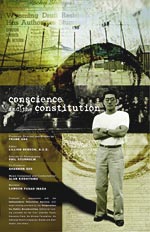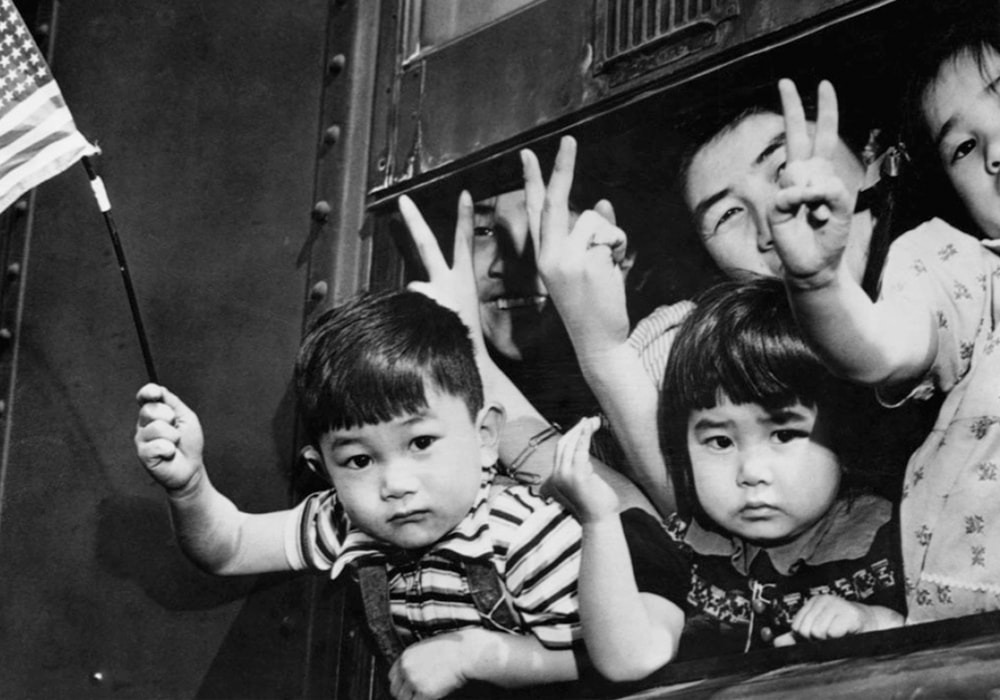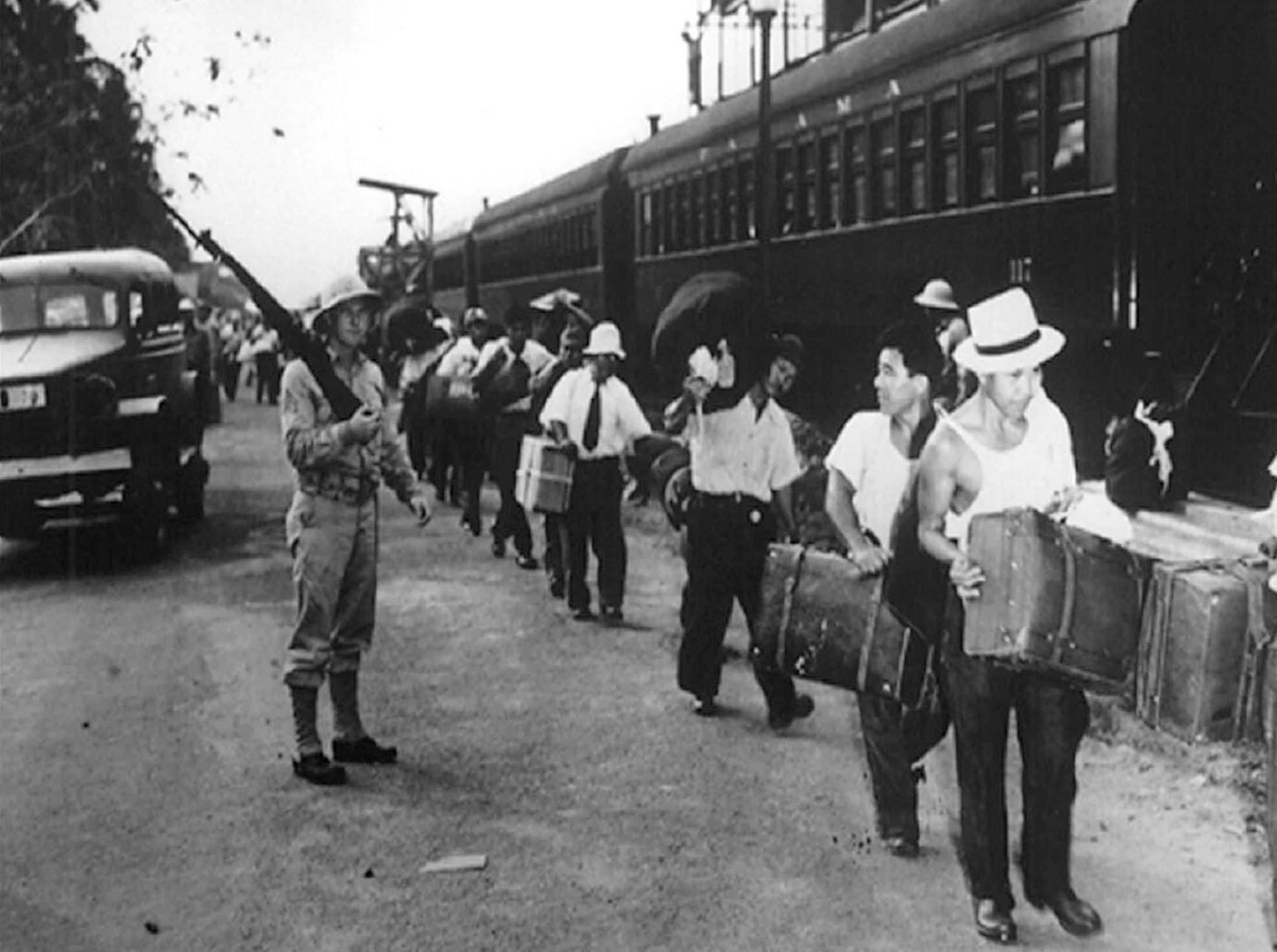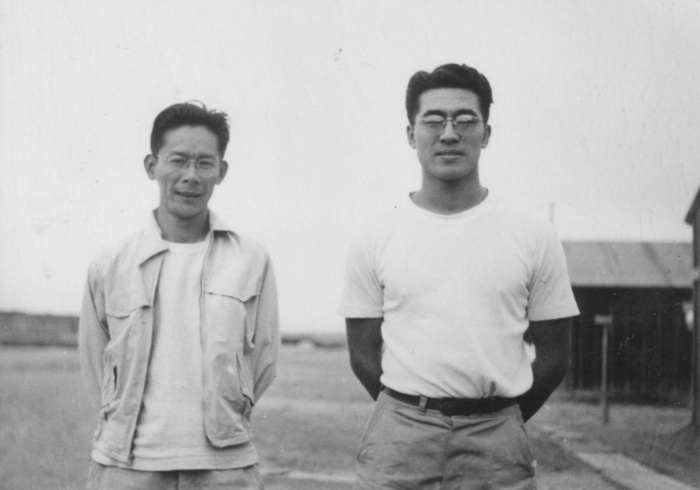 In 1944, 63 young men stood trial for resisting the draft at the concentration camp at Heart Mountain, Wyoming. Seven leaders were accused of conspiring to encourage them. The dissidents served two years in prison, and for the next 50 were written out of the popular history of Japanese America.
In 1944, 63 young men stood trial for resisting the draft at the concentration camp at Heart Mountain, Wyoming. Seven leaders were accused of conspiring to encourage them. The dissidents served two years in prison, and for the next 50 were written out of the popular history of Japanese America.
During World War II, despite being warned there was no military necessity, and having no evidence of planned sabotage or imminent invasion, President Franklin D. Roosevelt ordered the mass removal of 110,000 persons of Japanese ancestry from the West Coast to 10 American concentration camps in seven states: California, Wyoming, Idaho, Utah, Arizona, Colorado, and Arkansas. They held both the Issei, first-generation immigrants who were barred from U.S. citizenship, and their children, the Nisei, born in this country as U. S. citizens. Two-thirds of those incarcerated were U.S. citizens.
Over time the American public has come to understand that the forced expulsion and incarceration was wrong, and in 1988, the government held itself accountable, apologized, and awarded token redress to recognize the Constitutional violations. Conscience and the Constitution takes the camp story a step further, by examining two different Japanese American responses to the injustice: compliance and resistance. [Producer’s description.]
Produced by ITVS.
Also see: Tribute to Fair Play Committee member Frank Emi










Twitter
Google plus
LinkedIn